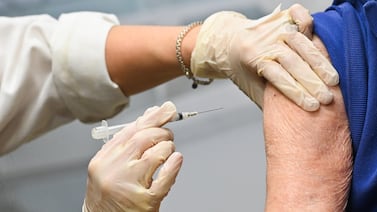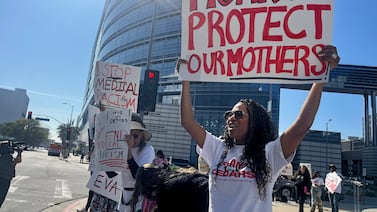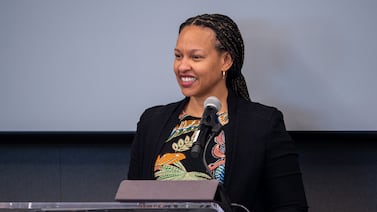Public health, explained: Sign up to receive Healthbeat’s free Atlanta newsletter here.
After receiving recommendations from a government advisory commission last month, the Georgia Opioid Crisis Abatement Trust announced awards of just over $70 million of opioid settlement funds Wednesday for 128 projects to combat the state’s overdose epidemic.
The grants, set to be used in 2025 and 2026, are intended to help prevent Georgians from developing opioid addictions, connect people with substance use disorders to harm reduction and treatment programs, and bolster recovery resources across the state. The Trust published a list of accepted grantees on its website.
In mid-November, a commission made up of people who work in governments across Georgia recommended that the trust’s manager, Department of Behavioral Health and Developmental Disabilities Commissioner Kevin Tanner, allocate $71 million for this first round of awards.
A department spokesperson said she believed Tanner adjusted those numbers slightly to get to a final award total of $70.3 million. She said she hopes award recipients will receive their funds soon after they accept the grant terms.
“Opioid-related overdoses have devastated families, but these grants will start to turn the tide,” Tanner said in a press release. “Through strategic partnerships and targeted investments, we are equipping communities with the resources they need to combat this crisis and save lives.”
He awarded four organizations — the Decatur Prevention Initiative, Gwinnett County Board of Health, Positive Transition Services, and View Point Health — grants collectively worth about $1.3 million to address opioid addiction in the metro Atlanta region. Additionally, the City of Atlanta and Cobb, DeKalb, Gwinnett, and Fulton counties collectively received $5 million for additional crisis-abating projects.
Drug overdose is one of the leading causes of death in Georgia, especially among adolescents and young adults. From 2013 to 2023, the overdose death rate more than doubled in Atlanta and Georgia.
The trust is funded by a $638 million settlement from four pharmaceutical companies — AmerisourceBergen, Cardinal Health, Janssen, and McKesson — accused of marketing prescription pain opioids in ways that endangered the public. Of that payout, $479 million is managed by the trust, and $159 million is set to be distributed directly to local Georgia governments.
Allen Siegler is a reporter covering public health in Atlanta for Healthbeat. Contact Allen at asiegler@healthbeat.org.





